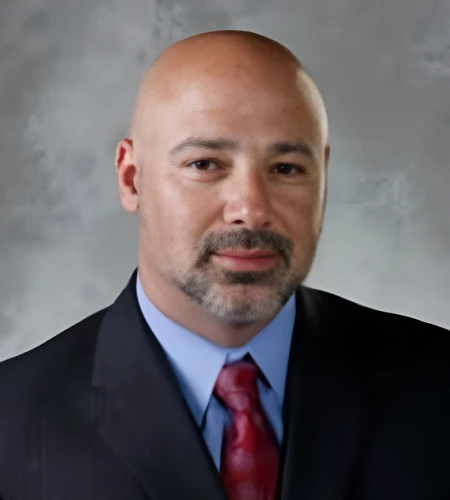Summer camps are meant to be safe spaces for children to explore, grow, and form friendships. Tragically, some California summer camp sexual abuse cases show that certain facilities failed in this duty. In certain situations, counselors, staff members, and volunteers have abused their positions of trust, causing deep and lasting harm to the children they were meant to protect.
These cases are especially challenging because of remote locations, limited parental oversight, and camp cultures that may prioritize reputation over safety. Overnight stays increase the risks, as children rely entirely on camp staff, often with restricted communication with parents.
If your child has experienced sexual abuse at a California summer camp, you have legal rights that extend beyond what camp administrators or their insurance representatives may suggest. Contact Horowitz Law at (954) 641-2100 for a completely confidential consultation to discuss your family’s options for seeking justice and holding negligent camp organizations accountable.
Table of contents
- Key Takeaways for California Summer Camp Sexual Abuse Cases
- How Horowitz Law Stands Against Summer Camp Industry Negligence
- Past Case Results
- California's Summer Camp Regulatory Framework and Legal Protections
- Summer Camp Organizational Liability for Child Sexual Abuse
- Hear From Our Clients
- Recognizing Summer Camp Sexual Abuse Warning Signs
- California's Camp Licensing and Mandatory Reporting Requirements
- Types of Harm in California Summer Camp Sexual Abuse Cases
- FAQs for California Summer Camp Sexual Abuse
- Seek Justice for California Summer Camp Sexual Abuse Survivors
Key Takeaways for California Summer Camp Sexual Abuse Cases
- California summer camp sexual abuse cases involve camp personnel who exploited their authority over children in isolated recreational environments where parental oversight is minimal.
- Summer camp organizations may face liability under California law when their hiring practices, supervision failures, or inadequate safety protocols enable sexual abuse in overnight or day camp settings.
- California offers extended statutes of limitations for childhood sexual assault survivors and strong mandatory reporting laws, which together provide more robust protections than many other states.
- Families may pursue compensation for therapy costs, alternative recreational programs, lost camp experiences, and the developmental harm caused by abuse in trusted environments.
- California summer camp sexual abuse legal representation operates on contingency fee arrangements, making experienced counsel accessible while maintaining complete confidentiality throughout the legal process.
How Horowitz Law Stands Against Summer Camp Industry Negligence

Horowitz Law has uncovered serious failures in some California summer camps that allowed predators access to children in isolated recreational settings. Our attorneys focus exclusively on sexual abuse litigation, and many cases show camps prioritized revenue and enrollment over proper screening and supervision of staff.
Families deserve accountability from camps that advertise safety while implementing minimal protection measures. Although many camps operate responsibly, others cut corners on child safety, relying on parents’ trust and children’s vulnerability.
Our representation exposes both individual abusers and the institutional negligence that enabled abuse in settings meant for recreation and development. We serve families across California, from mountain and coastal overnight camps to urban day programs.
Our litigation strategy provides immediate support to survivors while driving industry-wide reforms, including stronger background checks, supervision, and reporting protocols to protect future campers.
Past Case Results
California's Summer Camp Regulatory Framework and Legal Protections

California regulates licensed overnight “organized residential camps” through health and safety codes enforced by the State Department of Public Health and local health departments.
However, many day camps or private recreational programs may fall outside state licensure, with regulatory oversight varying widely depending on the camp’s structure and locality. California Health and Safety Code Section 18897 establishes requirements for organized camps regarding health, safety, and supervision standards that indirectly support child protection.
The state's regulatory approach acknowledges that summer camp sexual abuse involves institutional failures in hiring, training, and supervision that create opportunities for predators to access children in recreational settings.
Licensed camp facilities must meet specific standards for child protection, yet enforcement mechanisms often prove inadequate when camps operate in remote locations with limited oversight.
Understanding Time Limits for California Summer Camp Sexual Abuse Cases
California summer camp sexual abuse cases operate under legal frameworks that recognize the unique challenges children face in understanding and reporting abuse experiences that occur during recreational activities. For survivors who were under 18 when camp abuse occurred, California Code of Civil Procedure Section 340.1 provides extended timeframes until age 40 or within five years of discovering psychological injury.
These extended time limits reflect developmental research showing that children often view camp experiences as positive memories despite abuse, and may not understand the harmful nature of inappropriate conduct until years later.
Many summer camp abuse survivors don't connect childhood experiences to adult psychological struggles until they're dealing with parenting decisions about their own children's camp participation.
California previously enacted a three-year “lookback window” under AB 218 (2019–2022), which allowed survivors to file previously time-barred claims. As of 2025, this window has closed; however, victims who are younger than age 40 or less than five years from discovering injury may still bring cases under CCP § 340.1.
Summer Camp Organizational Liability for Child Sexual Abuse

California summer camp sexual abuse cases frequently involve organizational defendants whose operational practices create environments where sexual abuse occurs without adequate detection or intervention. Summer camps may face liability under California law when their negligent hiring, supervision, or safety practices enable staff members or volunteers to sexually abuse children.
Courts recognize that camps owe a significant duty of care to protect children, given campers’ vulnerability. These organizations market themselves as safe environments for vulnerable children while often implementing cost-cutting measures that compromise comprehensive safety protocols.
Common Summer Camp Failures That Enable Sexual Abuse
Camp organizations throughout California have faced liability claims when their operational practices and cost-reduction strategies created opportunities for sexual abuse or prevented appropriate intervention to protect children.
California summer camp sexual abuse attorneys identify patterns of organizational negligence that appear across different types of recreational programs serving children. These breakdowns often involve repeated failures in child protection:
- Summer camps conduct inadequate background screening that fails to identify staff with histories of violence, sexual misconduct, or inappropriate behavior around children in recreational or educational settings.
- Camp organizations implement insufficient supervision protocols that allow staff and volunteers unsupervised access to children in isolated areas like cabins, bathrooms, or remote activity locations.
- Camp administrators dismiss or inadequately investigate parent or child complaints about staff behavior, inappropriate interactions, or concerning changes in children's camp behavior.
- Summer camp operations prioritize enrollment revenue and cost efficiency over child safety through inadequate staff ratios, minimal training programs, and insufficient facility security measures.
- Camp organizations lack comprehensive child protection policies, incident reporting procedures, and staff monitoring systems required for safe overnight and day camp operations.
Summer camp institutional liability recognizes that recreational organizations serving children have legal and moral obligations to create safe environments that prioritize child protection over profit maximization and operational convenience.
When camp organizations fail to meet appropriate safety standards through negligence or deliberate cost-cutting measures, they bear responsibility for the preventable harm that results from their institutional failures.
Hear From Our Clients
Recognizing Summer Camp Sexual Abuse Warning Signs

Summer camp sexual abuse often involves counselors or staff members who use their legitimate authority and access to children to identify vulnerable targets and gradually test boundaries through seemingly innocent interactions.
California summer camp sexual abuse attorneys work with child development professionals to help families understand behavioral indicators that may suggest abuse as well as organizational warning signs that indicate inadequate child protection measures.
Children may lose enthusiasm for camp, resist returning, regress behaviorally, or show unusual knowledge of adult topics, all of which are warning signs that should alert parents. However, many children don't disclose camp abuse directly, particularly when perpetrators frame inappropriate conduct as normal camp activities or special privileges.
Institutional Red Flags in Summer Camp Operations
Understanding summer camp operational practices helps families recognize when recreational organizations maintain appropriate child protection measures versus environments that may enable abuse through inadequate safety implementation. California summer camp sexual abuse attorneys have identified common organizational warning signs that suggest problematic camp cultures or insufficient safety protocols. These institutional indicators often reveal systematic problems with child protection in recreational settings:
- Summer camp facilities allow staff unsupervised access to children during vulnerable times like bedtime, bathing, or changing clothes without proper oversight or accountability measures.
- Camp cultures discourage children from reporting concerns about staff behavior or create environments where questioning adult authority is viewed as disruptive or disloyal.
- Summer camp operations lack clear policies regarding physical contact, gift-giving, or special relationships between staff members and individual campers.
- Camp organizations provide inadequate responses to parent concerns about staff behavior or fail to investigate reports of inappropriate interactions between staff and children.
- Summer camps maintain insufficient staff screening procedures, reference verification protocols, or ongoing background monitoring systems for seasonal employees and volunteers.
Recreational organizations that prioritize child safety welcome parent questions about protection policies and demonstrate transparency in their safety practices and staff supervision procedures.
When summer camps become secretive about operational practices or discourage parent involvement in safety discussions, these behaviors may signal a camp culture that values convenience and cost savings over child protection.
California's Camp Licensing and Mandatory Reporting Requirements

California maintains licensing requirements and mandatory reporting obligations that apply to summer camps and their employees when they suspect child abuse. California Penal Code Section 11166 establishes legal obligations for camp personnel to report suspected abuse to appropriate authorities rather than handling allegations through internal camp disciplinary procedures.
These reporting requirements create additional organizational liability when summer camps fail to comply with legal obligations or attempt to conduct internal investigations rather than involving proper authorities. California summer camp sexual abuse attorneys often pursue cases based on camp failures to report suspected abuse that could have prevented additional children from experiencing harm.
Summer camps that attempt to handle sexual abuse allegations through staff termination, internal discipline, or camp policy changes rather than involving law enforcement and child protective services may face both civil liability and regulatory penalties for failing to comply with California's child protection requirements.
Types of Harm in California Summer Camp Sexual Abuse Cases
Developmental and Emotional Harm from Summer Camp Sexual Abuse

Sexual abuse in summer camp settings causes unique developmental harm that affects children's relationships with recreational activities, outdoor environments, and independence-building experiences that camps are designed to provide. Survivors often struggle with anxiety about overnight activities, fear of recreational settings, and loss of trust in authority figures that can impact participation in normal childhood development opportunities.
Grooming and Manipulation Tactics in California Summer Camp Sexual Abuse
The manipulation tactics employed by summer camp abusers frequently involve exploiting the special relationships and trust that develop between counselors and campers. Abusers may use recreational activities to normalize inappropriate physical contact and leverage the camp's isolated environment to maintain secrecy.
California summer camp sexual abuse attorneys understand how these camp-specific dynamics impact young survivors and address both immediate trauma and long-term consequences for recreational participation and social development.
Long-Term Consequences of Summer Camp Sexual Abuse on Childhood Activities
California summer camp sexual abuse often creates ongoing consequences for children's willingness to participate in overnight activities, recreational programs, or independence-building experiences that are important for normal development. Many families require alternative recreational arrangements and specialized therapy to address the impact of abuse on their child's ability to trust adult supervisors in recreational settings.
Legal and Economic Damages in California Summer Camp Sexual Abuse Lawsuits
Economic damages may cover therapy, family counseling, alternative recreational programs, and ongoing treatment for trauma. In some cases, punitive damages may be available if camps acted with malice, fraud, or conscious disregard for child safety, as defined under California Civil Code § 3294.
FAQs for California Summer Camp Sexual Abuse
What immediate steps should parents take if they suspect summer camp sexual abuse occurred?
Parents should prioritize their child's immediate safety by removing them from the camp environment, seeking medical evaluation to document any physical evidence, and reporting suspected abuse to law enforcement and child protective services. Families should avoid extensive questioning of young children about abuse details, instead focusing on emotional support while allowing trained professionals to conduct appropriate forensic interviews and evidence preservation.
What makes summer camp sexual abuse cases different from other child abuse litigation?
Summer camp cases involve unique recreational environments, overnight supervision challenges, and seasonal employment patterns that distinguish them from other institutional abuse contexts. The isolated nature of many camps, combined with children's dependence on staff for all daily needs, creates enhanced vulnerabilities that require specialized legal approaches addressing both individual harm and organizational accountability for recreational safety failures.
Can families pursue legal action against camps that operate on public land or through government agencies?
Claims against government-affiliated camps may be subject to governmental immunity and specific procedures under the California Tort Claims Act, including a six-month notice requirement before suit. Liability depends on camp ownership, operational control, and the involvement of a public entity, as well as fulfilling statutory notice deadlines.
How do remote camp locations affect sexual abuse cases and evidence preservation?
Remote summer camp locations often complicate evidence collection, witness availability, and law enforcement response while creating additional vulnerabilities for children who have limited communication access and no immediate escape options. These isolation factors may enhance both the severity of abuse and the legal liability of camp organizations that choose to operate in remote environments without implementing adequate safety measures and communication protocols.
What compensation might families receive in California summer camp sexual abuse cases?
Compensation in summer camp sexual abuse cases depends on factors including the severity of abuse, impact on recreational participation, organizational liability, and long-term consequences for child development.
California summer camp sexual abuse attorneys pursue damages for therapy costs, alternative recreational programs, lost camp experiences, medical treatment, family counseling, and other consequences of camp-related trauma, with potential punitive damages when camps demonstrate deliberate indifference to child safety.
Seek Justice for California Summer Camp Sexual Abuse Survivors

Summer camps that place revenue ahead of child protection break the trust that families extend to recreational organizations across California. These camps often advertise themselves as safe spaces for growth and independence while relying on limited safety measures created to lower costs instead of prioritizing the protection of vulnerable children.
When families take action against camp failures, they not only support their child’s healing but also drive meaningful changes that may protect other children in the future. Camps already have the ability and resources to adopt stronger child safety practices, but too many postpone improvements until legal action requires change.
If your child has suffered sexual abuse at a California summer camp, you have legal options. Contact Horowitz Law at (954) 641-2100 for a completely confidential consultation. Our attorneys understand the harm your family has experienced and the challenges of pursuing justice against camp organizations. We work to hold camps accountable and to promote safer recreational environments for every child.